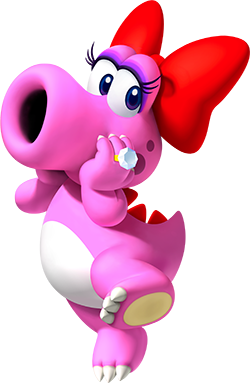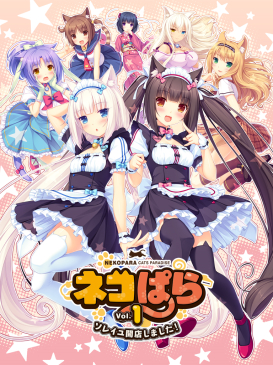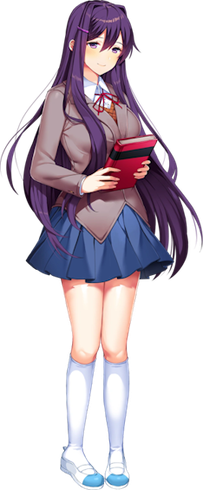
The fourth wall is a performance convention in which an invisible, imaginary wall separates actors from the audience. While the audience can see through this "wall", the convention assumes the actors act as if they cannot. From the 16th century onward, the rise of illusionism in staging practices, which culminated in the realism and naturalism of the theatre of the 19th century, led to the development of the fourth wall concept.

Super Mario Bros. 2 is a 1988 platform game developed and published by Nintendo for the Nintendo Entertainment System. After the smash hit Super Mario Bros. in 1985, Nintendo quickly released a minor adaptation of the original with advanced difficulty titled Super Mario Bros. 2, for its mature market in Japan in 1986. However, Nintendo of America found this sequel too similar to its predecessor, and its difficulty too frustrating, for the nascent American market. This prompted a second Super Mario Bros. sequel based on Yume Kōjō: Doki Doki Panic, Nintendo's 1987 Family Computer Disk System game which had been based on a prototype platforming game and released as an advergame for Fuji Television's Yume Kōjō '87 media technology expo. The characters, enemies, and themes in Doki Doki Panic have the mascots and theme of the festival, and were adapted into the Super Mario theme to make a Western Super Mario Bros. sequel.

Birdo, known in Japanese as Catherine is a character in Nintendo's Mario franchise. Her first appearance was as a boss character in Yume Kōjō: Doki Doki Panic (1987), which was localized for English-language audiences as Super Mario Bros. 2 (1988). Since then, Birdo has been a recurring character in various Mario franchise games making several cameo and playable appearances.

Celes Chere is a character and protagonist in the video game Final Fantasy VI. She was created by Yoshinori Kitase and was his favorite character in the game. She struggles with allegiances between the Empire and the rebel group, the Returners before ultimately siding with the latter. She appears in other Final Fantasy titles, including the Theatrhythm series and World of Final Fantasy.
Natsuki is a common Japanese given name. While it is a unisex name, it is more commonly used by women. It can also be used as a surname.
Ai is a Japanese and Chinese and Vietnamese given name.

Musashi no Ken is a Japanese sports manga series written and illustrated by Motoka Murakami that focuses on kendo. It was serialized by Shogakukan in Weekly Shōnen Sunday between April 1981 and October 1985. Musashi no Ken received the 1984 Shogakukan Manga Award for shōnen manga.

Yume Nikki is a 2004 adventure game created by the pseudonymous Japanese developer Kikiyama. The player controls a girl named Madotsuki and explores her dreams, collecting 24 effects that change her appearance and equipment. Random events also occur throughout the game in the form of cutscenes and unique gameplay sequences. The game was developed using RPG Maker 2003 without a traditional plot or battle system. Gameplay instead focuses on exploration of the dream world.

Eversion is a platform game by British indie studio Zaratustra Productions for Microsoft Windows. It was originally released as freeware in 2008, with a high-definition remake being released on Steam and Humble Bundle in 2010.

Yuno Gasai is a fictional character and the main female protagonist of the manga series Future Diary, created by Sakae Esuno. In the series, Yuno pretends to be a perfect model student on the surface, but is actually a yandere who is obsessed with the main male protagonist Yukiteru Amano, and kills unhesitatingly to protect him.
Tomoyo Kurosawa is a Japanese actress and singer. Her major voice acting roles include Yuki Yuna is a Hero as Itsuki Inubozaki, Arknights as Amiya, Sound! Euphonium as Kumiko Ōmae, Otome Arisugawa in Aikatsu!, Rebecca in Cyberpunk: Edgerunners, Annabella in Tower of Fantasy, Miria Akagi in The Idolmaster Cinderella Girls, and Land of the Lustrous as Phosphophyllite. She also performed the opening theme to DokiDoki! PreCure, "Happy Go Lucky! Doki Doki! Pretty Cure".

Nekopara, taglined Cats Paradise, is a series of adult visual novels developed by NEKO WORKs and published by Sekai Project. The first game in the series, Nekopara Vol. 1, was released in December 2014, taking place in a world where humans live alongside catgirls. The series follows Kashou Minaduki and Shigure Minaduki, siblings who have a family of catgirls named Chocola, Vanilla, Azuki, Maple, Coconut, and Cinnamon. It is centered around work life at Kashou's pâtisserie and home life at Shigure's family house.

Yandere Simulator is a stealth action video game developed by YandereDev for personal computers. The story follows obsessively lovesick schoolgirl Ayano Aishi, nicknamed "Yandere-chan", who has taken it upon herself to eliminate anyone she believes is attracting her "senpai" Taro's attention. A 1980s-set prequel, Yandere Simulator: 1980s Mode, following how Ayano's parents Ryoba and Jokichi met, was soft-launched on October 10, 2021. The non-canon Yandere Simulator: Mission Mode follows Ayano as an assassin pursued by Nemesis.

Victoria Derbyshire is a British weekday current affairs programme, which was simulcast from April 2015 to March 2020 on BBC Two and BBC News Channel, hosted by Victoria Derbyshire. Its remit includes original stories, exclusive interviews and audience debates.
One Room is a Japanese original short anime television series produced by SMIRAL and animated by Typhoon Graphics. One Room is presented as a first-person narrative; the audience is the male protagonist. The anime has three different stories/routes, each with a different girl, in one room. The anime aired from January 11 to March 29, 2017. A second season by Zero-G aired from July 3 to September 25, 2018. A third season aired from October 5 to December 21, 2020.

Doki Doki Literature Club! is a 2017 visual novel video game developed by Team Salvato for personal computers. The story follows a student who reluctantly joins his high school's literature club at the insistence of his friend Sayori, and is given the option to romantically pursue her, Yuri, or Natsuki. Club president Monika also features heavily in the game's plot. The game features a non-traditional plot structure with multiple endings and unlockable cutscenes with each of the main characters. Although it initially appears to be a light-hearted dating simulator, it is actually a metafictional psychological horror game that extensively breaks the fourth wall.

Monika is a fictional character and the main antagonist of the visual novel Doki Doki Literature Club!. The character was created by Dan Salvato and voiced by Jillian Ashcraft. While Monika initially appears as the main tutor and supporting character that guides the player on their path to romance the three provided love interests, she is later revealed to be self-aware of her existence as a video game character; her words, actions and surroundings become increasingly malicious as she makes her intentions clear. She is apparently deleted at the end of the game, but returns to destroy the game itself to protect the player after the character Sayori becomes sentient in Monika's absence.

Yuri is a character in the 2017 video game Doki Doki Literature Club! She is a shy girl and someone romantically interested in the protagonist of the game. Over time, her mental illnesses become evident, including her self-harm tendencies. Described as both a dandere and kuudere, she is a member of the literature club, and a frequent rival to fellow member Natsuki. Her self-harm tendencies become more pronounced due to the game's antagonist Monika influencing the in-game files, which culminates in her stabbing herself to death after confessing her love for the protagonist. By many this was seen as an incredibly vulgar and dark turn of overwhelming emotion-proposing the event to be most shocking to those either exposed to the scene or informed of such.
Natsuki is a character in the video game series Doki Doki Literature Club!. She is one of four girls in the titular literature club, alongside Sayori, Yuri, and Monika. She is a tsundere given a backstory of domestic abuse by her fictional father, with her traits ultimately becoming more pronounced due to Monika's intervention in the game's files. She was created by Dan Salvato, who recognized the "reality" behind her and the others. Her character was inspired by people with depression in Salvato's life.

MiSide is an adventure game with horror elements developed by Russian indie development team AIHASTO. It was initially published as a demo on August 18, 2023 before being fully released on Steam on December 11, 2024. The game explores themes of reality and simulation, blending psychological horror tension with an interactive narrative.















